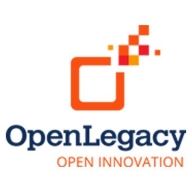

OpenLegacy and webMethods.io are enterprise-focused integration solutions, with webMethods.io often seen as having superior technological capabilities, offering advanced features that many organizations find beneficial despite its potentially higher cost.
Features: OpenLegacy enables effective modernization with rapid API development, seamless integration with mainframes, and a user-friendly API development environment. webMethods.io offers comprehensive integration features, cloud-based capabilities, and extensive connector support, making it versatile for various integration needs.
Room for Improvement: OpenLegacy could enhance its cloud integration capabilities, improve scalability in complex enterprise environments, and expand its connector library. webMethods.io could streamline its deployment process, reduce complexity in its user interface, and refine its pricing model for better competitiveness.
Ease of Deployment and Customer Service: OpenLegacy offers a straightforward deployment process, especially suited for legacy systems, supported by dedicated customer assistance. webMethods.io provides a flexible hybrid deployment model, combining cloud and on-premise options, alongside robust global customer support, offering high versatility across environments.
Pricing and ROI: OpenLegacy generally provides lower setup costs with quick ROI for organizations focusing on legacy integration. webMethods.io might involve higher initial costs but delivers ROI through its extensive feature set and adaptability, appealing to enterprises with broader integration demands.
| Product | Market Share (%) |
|---|---|
| webMethods.io | 2.5% |
| OpenLegacy | 0.7% |
| Other | 96.8% |
| Company Size | Count |
|---|---|
| Small Business | 23 |
| Midsize Enterprise | 11 |
| Large Enterprise | 64 |
OpenLegacy helps organizations quickly launch innovative digital services by extending their core back-end systems to the web, mobile and cloud in days or weeks versus months. Our microservice-enabled API integration and management software quickly reduces project backlog by automating and accelerating microservices and API creation, deployment, testing and management from core applications, mainframes and databases. Together, business and IT teams can quickly, easily and securely meet consumer, partner or employee demands for digital services without modernizing or replacing core systems, and without special programming skills or invasive changes to existing systems and architectures. OpenLegacy is designed for ongoing management of microservices APIs and is based on open standards, so our software plays nice with your current technology stack and supports agile, DevOps and continuous development. Learn why leading companies choose OpenLegacy at www.openlegacy.com.
webMethods.io Integration is a powerful integration platform as a service (iPaaS) that provides a combination of capabilities offered by ESBs, data integration systems, API management tools, and B2B gateways.
We monitor all API Management reviews to prevent fraudulent reviews and keep review quality high. We do not post reviews by company employees or direct competitors. We validate each review for authenticity via cross-reference with LinkedIn, and personal follow-up with the reviewer when necessary.